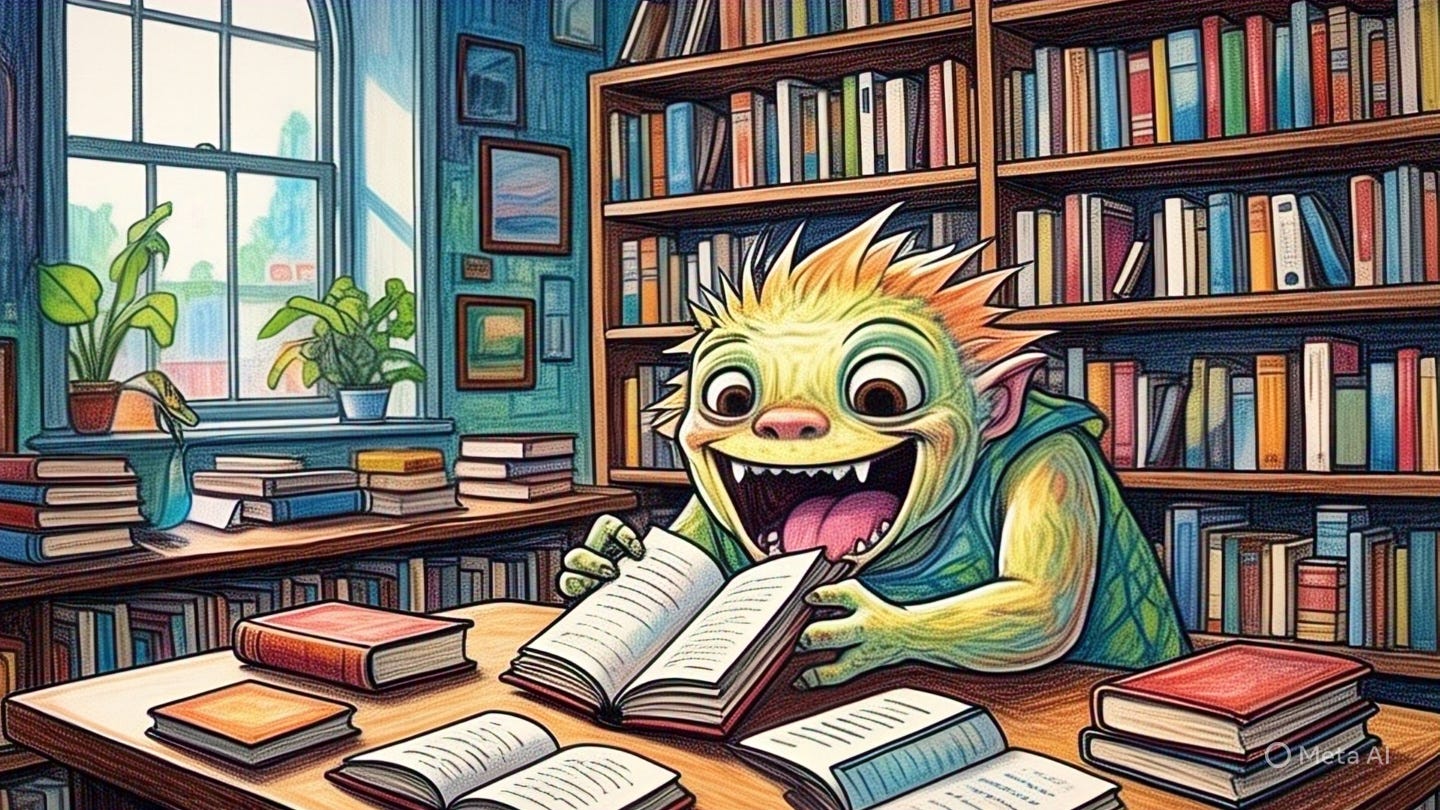In a world increasingly dominated by digital media, the physical book has become something of a cultural totem, imbued with meaning far beyond its functional purpose. The act of collecting books, displaying them, and even the identity of being “a reader” has developed a complex social and psychological ecosystem that invites some examination.
Jeanette Winterson’s declaration that book collecting is “not a hobby” but rather “an obsession, an occupation, a disease” speaks to the intensity with which some approach their relationship with books. This bibliomania transcends rational acquisition, becoming something akin to possession - both of the objects and by them. The collector is consumed by the very things they consume intellectually.
This fervor often manifests as cultural capital. Consider Emilia Clarke’s father’s aphorism about distrusting those whose televisions outsize their bookshelves. Such statements position book ownership as a moral virtue, a marker of intellectual superiority. But this raises uncomfortable questions: How is this sentiment fundamentally different from any other form of class signaling? The implied judgment against those with fewer books establishes a hierarchy with avid readers at the top - potentially excluding those without the means, space, or inclination to amass physical libraries. This is nothing but snobbery of a kind, and smacks of elitism. I remember being introduced to the brother of a woman I was dating years ago, a soi-disant intellectual. He hardly said anything when we first met - just looked me up and down, and then later asked his sister: “But what has he read?”.
Perhaps most curious is the reverence for books as transformative objects with near-magical properties. Haruki Murakami’s observation that “If you only read the books that everyone else is reading, you can only think what everyone else is thinking” suggests that reading outside the mainstream allows for independent thinking, yet this presupposes that books themselves are the primary triggers of original thought. This conception neglects the fact that many revolutionary thinkers throughout history - going back to Socrates, who famously wrote nothing (and preferred dialogue to reading) - developed profound ideas through observation, debate and critical inquiry rather than through books. What of those who read books that everyone else is reading merely to understand what everyone else is thinking, if only to challenge or refute what they are thinking and present a different view point? What might Murakami have to say about such readers?
Geoffrey Chaucer’s insight: “The greatest scholars are not usually the wisest people” cuts to the heart of this misconception. Scholarship - the accumulation of knowledge through study and reading - does not automatically confer wisdom. The voracious reader may absorb countless facts and theories but still lack the discernment, judgment, and experiential understanding that constitute wisdom. This distinction between information aggregation and illuminating insight undermines the dogmatic belief that more books automatically lead to greater edification.
I for one, never understood the obsession with books. I was quite the voracious reader as a boy, growing up in a time when there was no cable TV, no Internet and no mobile phones. I spent a lot of time in my youth in bookstores all over town - and even more time browsing through books spread out on the pavements in downtown Bombay by street vendors of used books. Not that I was ever insensitive to the feel of the book in my hands nor the smell of old books borrowed from lending libraries, but I never understood the romance that some readers - particularly those who, in today’s world, dislike digital books - associate with such sensations. To me it suggests a kind of unhealthy disease… bibliophagy perhaps?
The fetishism around books creates several paradoxes. Many collectors possess far more books than they could ever read, suggesting the ownership itself could become more significant than the content. Others display books prominently but engage with them superficially, using them as intellectual décor. We all know such poseurs and have observed the intellectual posturing they do - metaphorically if not physically, posing in front of large bookshelves in their well-stocked library (and no TV screen in sight - I wonder what Emilia Clarke’s father might say about such people).
A healthier approach might balance appreciation for books with recognition of their limitations. Books remain extraordinary vessels for human knowledge and experience, but they are neither sacred objects nor the exclusive path to wisdom. The truly erudite mind engages critically with what it reads, remains open to diverse sources of insight, and recognizes that the purpose of reading is not accumulation - either of data or status - but learning and development. As W B Yeats astutely observed, “Education is not the filling of a pail but the lighting of a fire.”
The book as physical object deserves appreciation, but perhaps the most valuable library is not the one that fills the most shelves, but the one that opens the most doors in the mind of its reader.



It's over forty years since I read of bibliophiles who would buy both remaining copies of a rare book, only to burn the lesser copy to increase the rarity and value of the greater copy.
To me this appeared to distinguish the said bibliophiles as mere collectors and it made me wary of becoming one myself. But I love reading and country life, a combination which makes a home library almost inevitable. Thus I find myself subject to almost all the foibles of the fetishization books that you describe.
I have a few that are now too rare and valuable to consider lending or even reading.
Ironically, one of the prime examples is a first edition , in dustjacket, of "Fahrenheit 451"
I still haven't read it, in any edition, and yet I don't part with it, and am unsure if that's just a reflection of its ever rising value.
I bought another 25 books at last weeks local second-hand book-fair. Some gems amongst them but, happily, none are valuable.